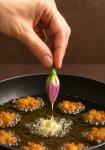In what is seen as a milestone in the effort to standardise Indian systems of medicine in the context of its growing global popularity, a Bangalore-based laboratory is releasing 'reference standards' for herbs used for ayurvedic drugs and formulations.
"To begin with, we are releasing reference standards with regard to 100 ayurvedic herbs next month," Sami Labs Chairman Muhammed Majeed told UNI on the sidelines of the World Health Assembly, organised by the World Health Organisation.
He said scientists in his laboratories in India and the US have succeeded in setting standards for 100 ayurvedic herbs after three years of intensive research. Dr Majeed is in the forefront of medicinal plant cultivation by engaging nearly 10,000 farmers in his farms in different parts of the country.
"These reference standards will be available to the industry for standardising their products,'' Dr Majeed, an NRI based in the US, said, pointing out that lack of reference standards made it difficult for standardisation of different ayurvedic drugs.
He said standardisation of herbs was important because it sought to remove toxic components. It also would help to ensure desired percentage of ''active ingredients'' in drugs for its efficacy.
The percentage of active ingredients in herbs and spices like turmeric vary from season to season and geographically.
For example, a piece of turmeric cultivated in one place would have five per cent of its active ingredient called 'curcumin'. But this would be less in one which is cultivated elsewhere.
The first batch of Sami Labs' reference standard would include important herbs and herbal extracts like Boswellia Serrata, Guggul, Adhatoda Vasaka, Picrorhiza Kurroa, Terminalia Arjuna, Curcuminoids and Pterocarpus Marsupium.





